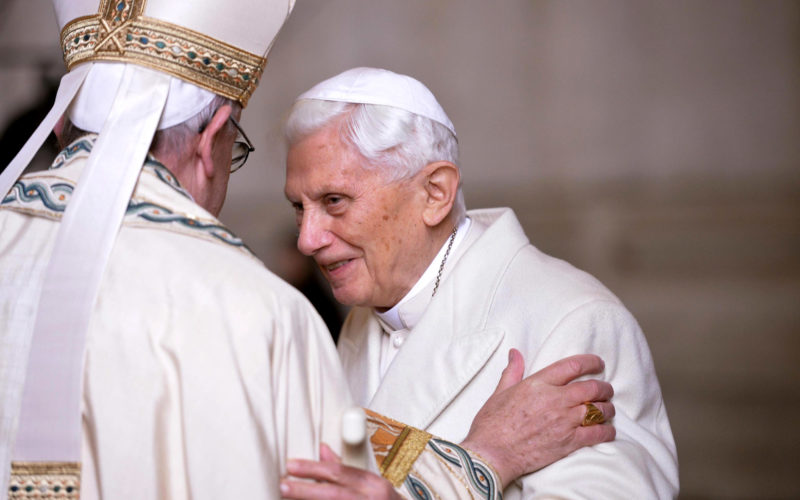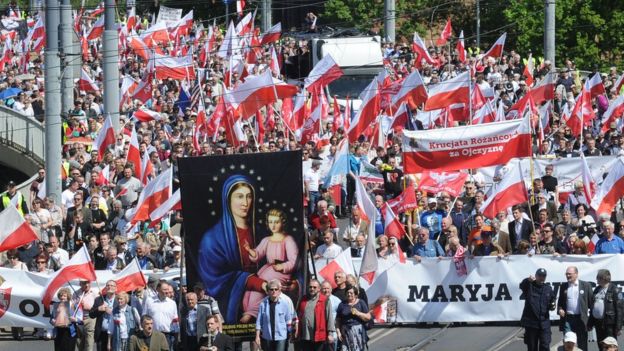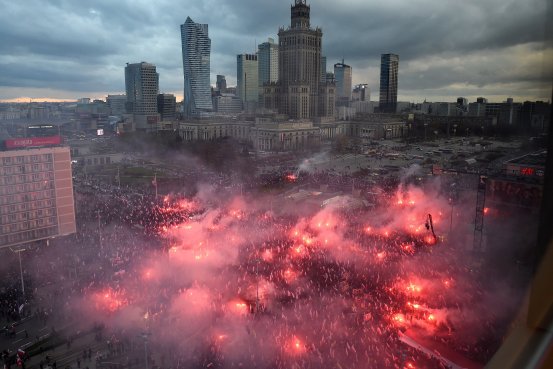The Long View 2005-12-22: Europe and Its Discontents

Pope Emeritus Benedict XVI
In this blog post, John Reilly points to a sublime essay written by Pope Emeritus Benedict XVI at the height of his powers: Europe and Its Discontents. Published in English by First Things magazine, Benedict analyzes the idea of Europe through a grand sweep of history, religion, and politics.
You should go and read it.
I was quite excited when Pope Benedict was elected, and this essay illustrates why. Benedict has an extraordinarily sharp mind, and he turned his mind towards the largest questions of our age. I think his diagnosis of the crisis of European civilization, broadly defined to include the European diaspora and those parts of the world brought fully into the European cultural orbit, holds up well eleven years later.
In particular, it seems to me that Benedict was right that the default position among the centrist coalitions that dominate politics in Europe and America and their cultural partners, that there is nothing of value in Western culture or history, is profoundly weak, and this weakness has enabled nationalist populists of various sorts to gain political power by simply not expressing disdain for their nations or their history.


I don't think these movements are really what Benedict had in mind:
What Europe needs is a new self-acceptance, a self-acceptance that is critical and humble, if it truly wishes to survive.
I think Benedict was trying to build a more peaceful future by looking squarely at what was happening, but also by trying to build bridges between the powerful and those in Europe who felt marginalized. In his characteristic way, he sought this way through truth.
He frankly said this about immigration and low birthrates:
At the hour of its greatest success, Europe seems hollow, as if it were internally paralyzed by a failure of its circulatory system that is endangering its life, subjecting it to transplants that erase its identity. At the same time as its sustaining spiritual forces have collapsed, a growing decline in its ethnicity is also taking place.
Europe is infected by a strange lack of desire for the future. Children, our future, are perceived as a threat to the present, as though they were taking something away from our lives. Children are seen—at least by some people—as a liability rather than as a source of hope. Here it is obligatory to compare today’s situation with the decline of the Roman Empire. In its final days, Rome still functioned as a great historical framework, but in practice its vital energy had been depleted.
Eleven years ago, Benedict attempted to head off the political crises we have now by warning that low birthrates and high rates of immigration with the frank intent to replace the missing natives were bound to reach a tipping point that sparked a backlash. Would that we had listened.
Europe and Its Discontents
The essay "Europe and Its Discontents," by Pope Benedict XVI, appears in the January 2006 issue of First Things. (This is the piece’s first appearance in English; it was apparently published in Europe last year.) The pope tries to define Europe geographically and religiously; to diagnose the causes of the loss of morale in European societies; and to outline certain remedies.
Europe, for the pope’s purposes, includes the historically Catholic, Protestant, and Orthodox regions of the Old World from the Atlantic to the Urals. To some extent, it also includes the Americas and the Russian East, but Benedict’s historical observations apply chiefly to Western Europe. He proposes the interesting hypothesis that the original self-consciousness of post-Roman Europe was an awareness of finality and mission provided by the model of history in the Book of Daniel. However, Benedict emphasizes that the notion of a distinction between church and state is very old in the West. As early as the fifth century, Pope Gelasius (492-496) cautioned that secular and spiritual authority were united only in Christ, not in any human institution. At the time of the Reformation, the traditional practice of close cooperation between church and state was challenged by the model of the state church, a model which later included provision for the toleration of free churches. The Enlightenment and the French revolution saw the beginning of laicism, under which religion was treated as a private matter and the public sphere was secularized as much as possible. The United States took a middle ground between these positions. The American stance is based on a combination of the religious disestablishment demanded by the free-church tradition with a national sense of universal religious mission. The result is not so far from the model of Pope Gelasius.
Throughout Europe, and also in the United States to a lesser degree, religion was in decline in the 20th century no matter the model that a given country favored. The same was true of socialism, which had briefly tried to replace religion or (in its democratic forms) supplement it. Thus, the terms in which Europeans had identified themselves for centuries lost their meaning. The loss of identity has apparently also meant the loss of the societal will to live. The symptoms are both demographic, in the form of below-replacement birthrates, and cultural, in the form of a multicultural refusal to embrace the European heritage or to pass it on.
The essay considers whether there is anything to be done about this situation. Benedict notes Oswald Spengler’s model of history, with its pattern of civilizations that grow, bloom, and decline toward death. The biological metaphors that Spengler used leave little room for hope. The pope is far more pleased with Toynbee’s model. It is not deterministic, and in fact it diagnoses the problem of modern Europe as a loss of social cohesion that arises from a loss of religious faith. Toynbee counseled that Western Civilization needed a new spiritual foundation. His Holiness, perhaps predictably, is of like mind.
The essay suggests three specific points of identity that Europe needs to regain:
Human rights must be acknowledged to have a transcendent origin;Marriage and the family must conform to historical norms;
There must be respect for the sacred; even atheists can be expected to manifest ordinary respect for what other people hold to be holy.
Returning at the end to Toynbee, Benedict notes that the well-being of a civilization depends on its creative minorities. He says that Christians should look on themselves as just such a creative minority. They should help Europe to regain its identity and thereby allow Europe to serve all mankind.
* * *
Reading Benedict’s short essay, one is reminded of Henri Pirenne’s observation that it is much easier to write briefly of a large subject; narrow topics, in contrast, must be treated at length. Actually, it is probably a failing on my part that my summary is as long as it is. So, rather than compound the error by long commentary, let me just highlight a few points that touch on my own peculiar interests.
It is a mistake to see too much daylight between Spengler’s and Toynbee’s views on the future of the West. Both spoke in terms of a civilization-wide revival of religion. The chief difference is that Spengler said “is” and Toynbee said “ought.” Spengler’s prophecy of the Second Religiousness is not perhaps wholly complimentary to religion; certainly it does not understand of the malaise of modernity as a religious issue. Nonetheless, it does point to a substantial resacralization of thought and of public life. It might be said, in fact, to predict the return to religion that Toynbee advised.
Note that Toynbee is a problematical prophet, however. Sometimes he seemed to think of the future not in terms of a revival of historical Christianity, but of the appearance of a new universal faith that would be the underpinning of a future ecumenical society. This new faith would have a large Christian component, of course, and it might even be considered a development of Christianity. Inevitably, however, it would be a Christianity with quite a lot of syncretic elements, certainly with regard to expression and possibly in terms of dogma. What use would such a Christianity be for the reconsolidation of a European Europe, whose problem is precisely the forgetting of the historic forms that this new Christianity would replace?
This brings to the three essential points that Benedict says must enter into a European identity. The items he mentions are unobjectionable, indeed obviously necessary. The problem is that there is nothing particularly European about them. Inalienable rights; a human model of the family; reverence for reverence: what part of the world does not need these things? One could argue, of course, that having returned to essentials, Europe would again embrace that part of its heritage that was consistent with them, and then move on to a new golden age. One fears, however, that such a thin understanding of the European identity would prove a bit like John Rawls’s theory of ethics: an economy of principles often produces an economy of results.
Then there is the basic question of whether religion should be recommended for its practical benefits. Jesus did not come into the world to save Western Civilization; he came to save souls. Augustine provided a partial answer to this objection, of course: Christians have an obligation to work for the betterment of the human condition, and it is no great stretch to argue that the revival of Europe would make the world a better place. However, there is a difference between a situation in which Christians know what they have to do and the practice of commending Christian principles to the world at large for their curative properties.
As for applying Toynbee’s notion of “creative minority” to the Europe’s dwindling stock of Christians: that would be a fine thing, but one does not create a creative minority at will. There is nothing wrong with elites per se; Toynbee is perfectly correct when he says they make the world go round. As we know, however, anyone who wants to belong to an elite does not deserve to be a member. Elites are constituted by the work they do; at their best, they scarcely notice their own status. An elite that knows it’s an elite is more likely to be what Toynbee called a “dominant minority,” the ruing class of a civilization in its terminal phase.
Having made all these carping remarks, let me conclude by saying that there is actually very little in Benedict XVI’s essay that I disagree with. The points I have made here are more in the nature of qualifications than of criticisms. Like Spengler, I am of the “is” rather than “ought” disposition. The difference is that I have persuaded myself that the “is,” the most likely future, is not so bad as some people (notably Spengler himself) would have us believe. Of course, for an inevitable good outcome to happen, we must act as if the outcome depends solely on our own efforts, which in fact it does.
It is entirely possible that I have thought about all this too much.
Copyright © 2005 by John J. Reilly



Comments ()